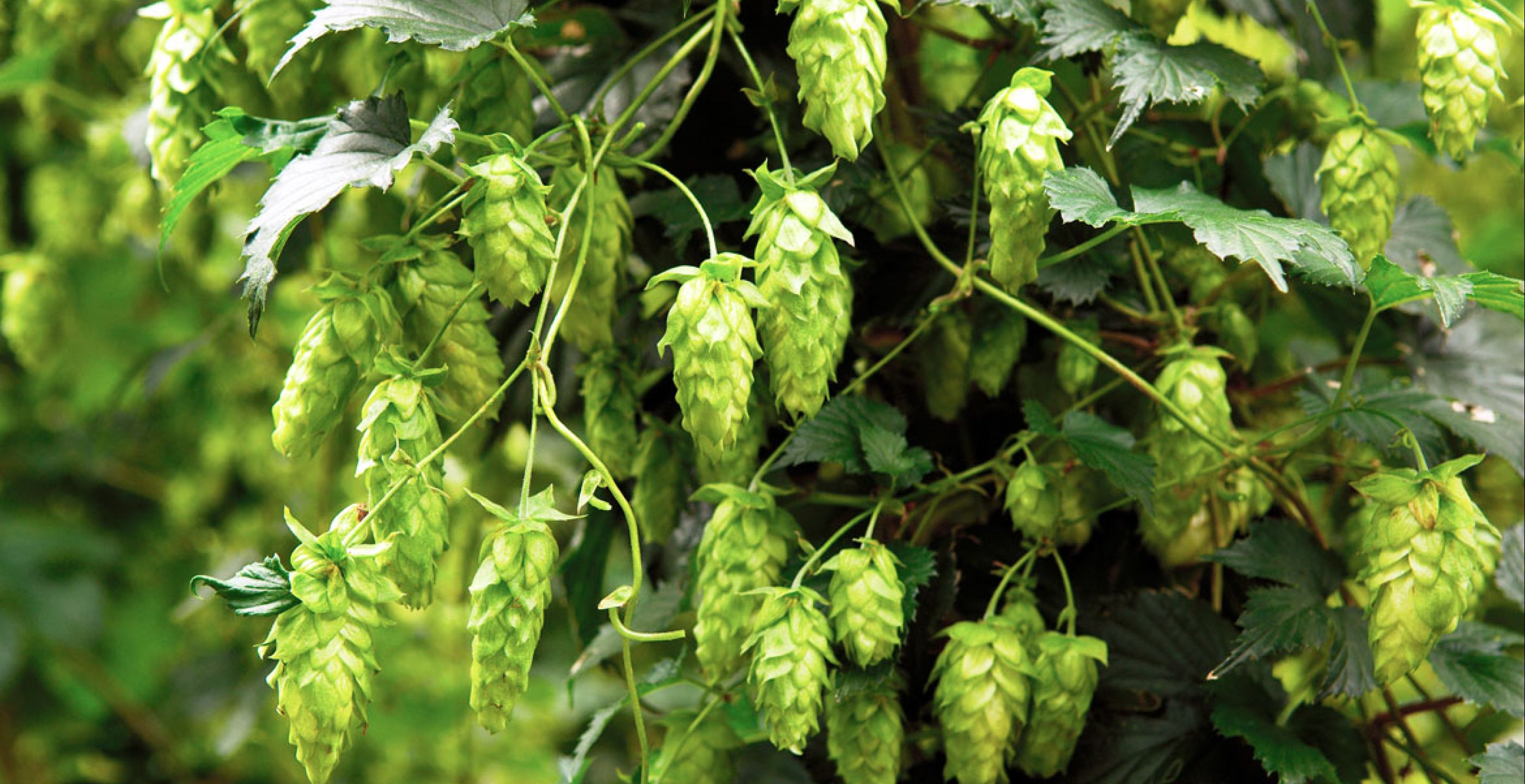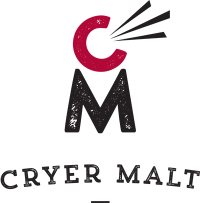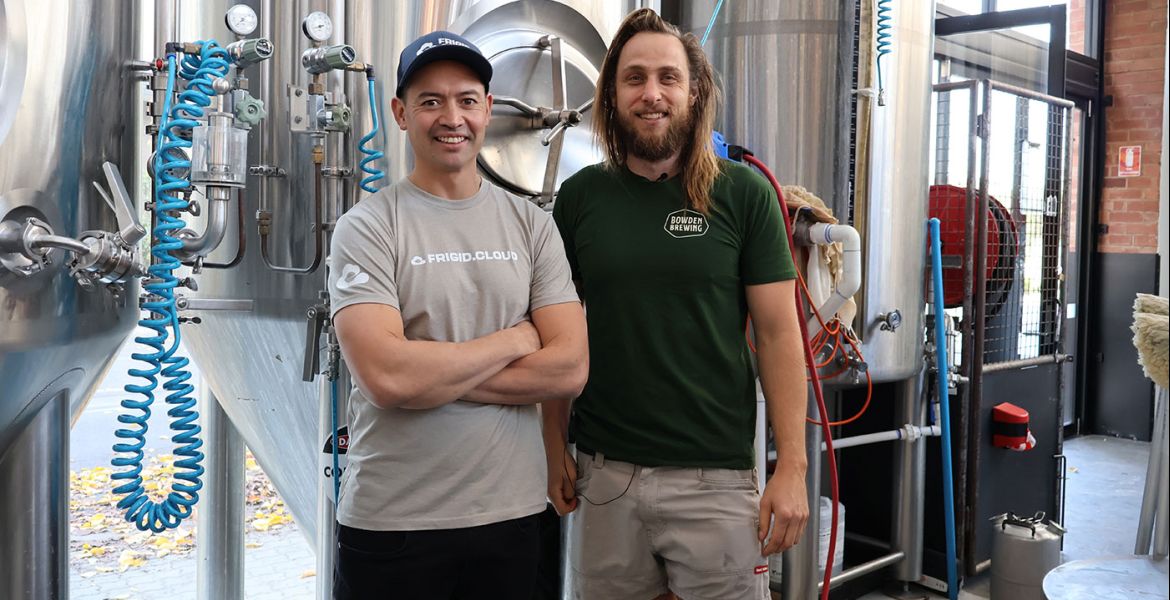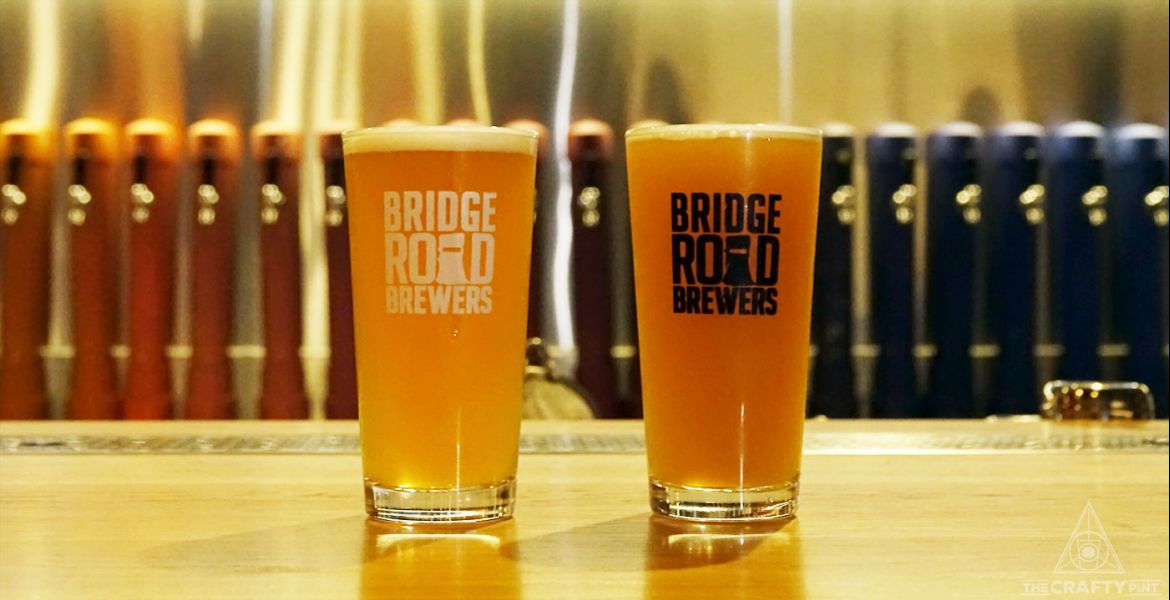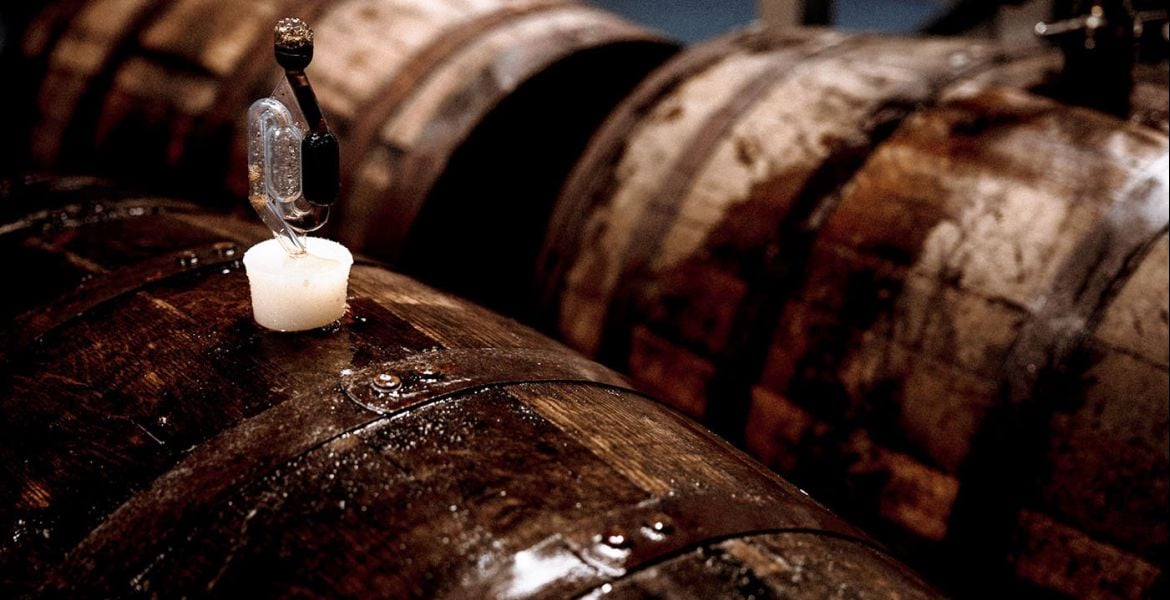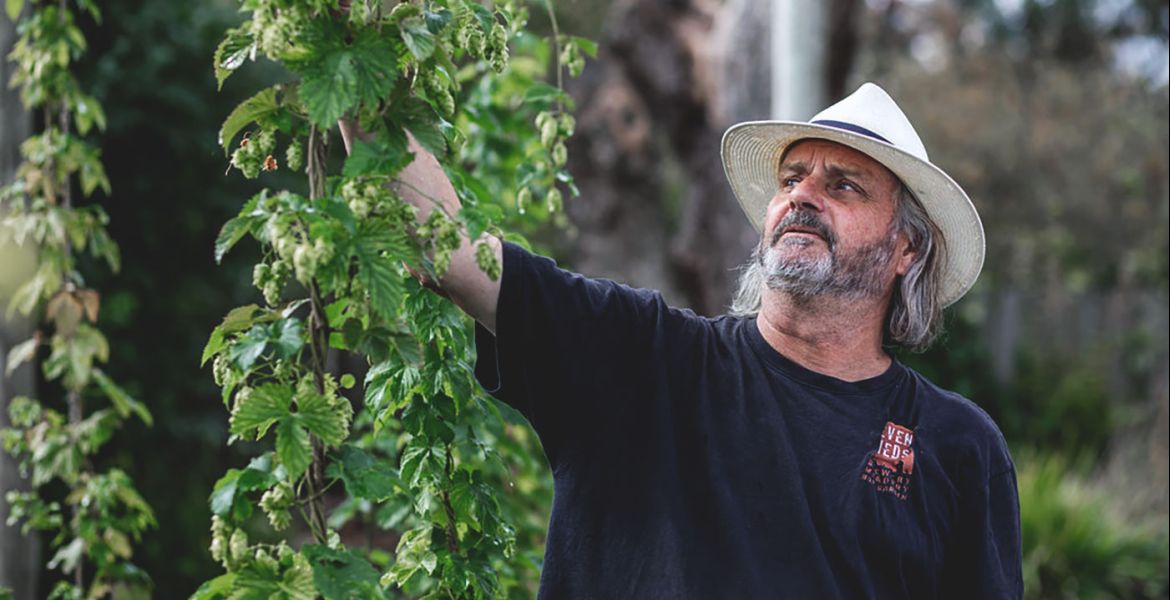It's not often we cast our eyes outside the Australian beer world on The Crafty Pint. But, following our story on Hop Products Australia's expansion plans, we're heading across the Tasman for a look at the hop industry in New Zealand.
There, all hop growers are members of a locally-run cooperative, New Zealand Hops, which is responsible for all off farm activity in the country's hop industry. Heading New Zealand Hops is Doug Donelan (below left), formerly head brewer at the Malt Shovel Brewery in Sydney, a well-travelled beer judge and a regular contributor to a wide range of beer publications and conferences the world over.
As the Southern Hemisphere hop harvests draw to a close, we sent a few questions his way to find out more about how the industry in New Zealand operates, why it was so "way ahead of the curve" with the development of aroma and flavour hops, how it is managing in a time of global hop shortages, and who makes the best use of Kiwi hops in their beers.
How large is NZ hop production these days? Is it growing? And can it grow enough to meet demand?
DD: New Zealand Hop Production is at approximately 750 MT (750,000 kilograms) per annum. This is fairly static currently and the reason for this over the past few years has been a shift in strategic direction.
Land area is increasing, however volume does not necessarily track at the same pace… [This is because] a shift out of high volume production equates to more land for lower production; specialty aroma hops generally are lower yielding which quite simply means less hops off more land.
What's happening in New Zealand is being seen in the USA and Australia… there's a heap more involved in growing a wide range of diverse cultivars than pumping out high volume commodity varieties.
Does every grower belong to the cooperative?
The cooperative model was developed initially to create a hops products company to cold store and process the hops into pellets for the New Zealand Hop Marketing Board to market. The Marketing Board evolved out of the deregulation of grower boards in New Zealand. All growers now are members of the cooperative.
Why was it set up like it is? And what benefits does it bring?

Cooperatives bring with them several advantages and quite simply don't exist if they can't work… They generally exist in industries where high levels of expenditure are required to store, process and market products, especially where detailed analysis and research is required and a breeding programme needs to be supported.
There are other things of course such as compliance and quality systems that need to managed as a collective, especially where exports make up a considerable piece of your business.
FDA (Food and Drug Administration) into the USA and ever increasing European regulations, as well as trade into Japan, Korea and China, all require auditable management systems and accreditation. Hops are a food product which, for the most part, receive zero preparation from garden to glass. The cooperative manages all of this on behalf of the growers.
When did NZ growers decide to go down the aroma / flavour route or was it something they chanced upon with newer varieties?
The “Hops with a Difference" programme started in the early 90s so it's nothing new really. Aroma had been a major focus for the breeding programme with a view to produce comparable fine aroma varieties to those in Europe.
The Germans had been telling everyone for decades that only their varieties could ever be fine aroma or “noble" types and made up analytical values to prove it... The reality was they had great hops, especially for the beers they were making, and of course traditionally everyone had wanted to make beer just like it.
The New Zealand breeding programme was way ahead of the curve… they'd already developed the world first commercial triploids and the highest alpha producing cultivars, what came next was taking land race traditional European varieties and breeding them with NZ developed hops to produce some of what we see today.
How many proprietary varieties have come out in the past ten years or so (when Hop Products Australia has been on the aroma / flavour train)?
We were well ahead of HPA; in fact their business model actually mirrors ours almost completely on many levels, although I'm sure [HPA managing director] Tim [Lord] would never say they looked at us and thought: “Why aren't we doing what they're doing?"
We've released three new varieties over the last three years: Kohatu, Waimea and Wai-iti… but we have brought to the front Motueka, Nelson Sauvin, Pacifica, Riwaka, Rakau and Southern Cross over the past ten years.
Which are the ones with greatest demand?

Nelson Sauvin is without doubt the biggest fish in the bucket, but there a few others with heaps of appeal. Motueka (pictured at the top of the article) is a killer hop and a particular favourite of mine, but currently and in no particular order: Riwaka, Pacifica, Pacific Jade, Southern Cross, Rakau, Kohatu, Wai-iti, Dr Rudi…etc...etc...
We're in a good place because much of the market hasn't even found us yet.
What do you look for in new varieties?
Breeding is complex, extraordinarily complex. Fortunately for us we are disease free so resistance isn't in the criteria; we are looking for hops with "Wow" factor, the ones that you smell in a beer and say, “Fuck! What's that?"
Tropical fruit, big citrus, stone fruits… Wai-iti is a classic example: low alpha [acids which predominantly contribute bitterness to beer] at around 3.0 percent but big weight of oils [essential oils that contribute much flavour and aroma when used at the right time in the brewing process] and it smells of peaches in the beer…
There's more to it than that though: the picking window, agronomics, picking ability, yield, chemistry, there's heaps of stuff that needs to line up…
It's almost impossible to breed the perfect hop; Nelson Sauvin, for example, is extremely difficult to pick.
Brewers should look a bit closer at older varieties as well; good hops don't stop being good hops just because a new one is released. Dr Rudi is a great example of one of yesterdays heroes…
Who makes best use of your hops?
That's difficult to say as there are several types, styles and applications… We have guys internationally doing all sorts of great stuff but locally I'd probably say Renaissance if I had to put a name to anyone.
What, in your opinion, are the three beers that best showcase Kiwi hops?

I won't give three best beers but will offer this: Schneider in Germany make a delicious big fruity Hefeweizen; Kirin in Japan make an excellent delicate lager; and Alpine Brewery in Southern California make a big IPA all with the same hop, Nelson Sauvin.
Out of our range of hops it's hard to say where my preferences lay as they all have their own good points while you have to accept that some brewers may like some varieties over others. It's a very personal thing and in the end the hops have to deliver what the brewer wants to drink.
If forced to make a pick myself it would probably be Motueka – I just love its fresh crushed lime character, almost like a mojito… It also has a minerally thing going on in the finish that I like especially in lagers.
Can people come to check out the hop farms? If so, when and how?
We don't do public tours but do show trade people around the processing operations by arrangement. We also take brewers around to look at the growing operations during harvest.
Thanks, Doug. For some reason a serious craving for an NZ pilsner has come over us...



